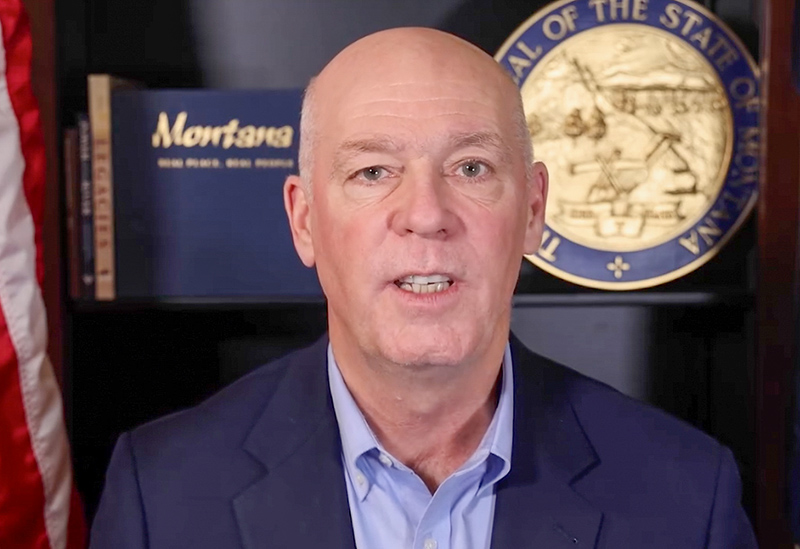Georgia superintendent under pressure to issue decision on transgender restrooms
District is trying to balance parents' opposition to trans-friendly policy with the possibility of a costly lawsuit

A Georgia school superintendent finds himself under pressure from dueling sides as he prepares to make a decision about whether to allow transgender students to use the bathroom matching their gender identity.
Dr. Carlton Wilson, the superintendent of the Pickens County School District, located about 60 miles north of Atlanta, finds himself weighing overwhelming opposition from parents who want schools to continue to segregate students based on their assigned sex at birth, and a smaller minority who argue that bending to the majority’s desires will leave the school vulnerable to a costly legal challenge.
Currently, students in the county who identify as transgender are allowed to use a gender-neutral restroom until Wilson makes a final decision, reports the Atlanta-based new station WXIA-TV.
But a pending legal challenge before the 11th U.S. Circuity Court of Appeals involving a Florida transgender male student who is suing for the right to use the boys’ restroom could have serious implications for schools in Georgia, which are under the jurisdiction of the 11th Circuit. That case will be argued before the court in December.
The student in the Florida case, Drew Adams, sued his Jacksonville-area school district after he was barred from the boys’ restroom, alleging discrimination under both the Fourteenth Amendment to the U.S. Constitution and Title IX of the Education Amendments Act of 1972. Adams’ lawyers have also argued that the school district’s restroom policy sends a message to transgender students that they are undeserving of the privacy, respect, and protections afforded to their cisgender peers.
A federal judge ruled in favor of Adams, prompting his local school district to appeal the case to the 11th Circuit — and continuing a trend of federal courts siding with transgender students.
In August, a federal judge in Virginia ruled in favor of Gavin Grimm, a transgender alumnus of Gloucester High School in Gloucester County, Va., finding that a similar policy barring Grimm from the boys’ restroom was unconstitutional and discriminatory.
In 2017, the 7th Circuit Court of Appeals determined that a Wisconsin school district had unfairly discriminated against a transgender boy by barring him from using facilities matching his gender identity.
That same year, a Pittsburgh-area school district settled a lawsuit brought by three transgender students, agreeing to restore a decades-old policy allowing transgender students to use restrooms matching their gender identity. That policy had been temporarily rescinded the previous year after the school system caved to demands from parents who objected to federal guidance issued by the Obama administration advising schools to treat transgender students according to their gender identity.
Faced with all that precedent, Wilson acknowledged, during a contentious school board meeting on Monday evening, that if he chooses to adopt a policy requiring transgender students to use only those facilities designated for their assigned sex at birth, the school system could be sued, and potentially go bankrupt trying to defend the policy in court.
“I’ve been told by legal counsel, several different legal counsels, upon receiving a lawsuit, that we will lose that lawsuit and it will cost anywhere from several thousand dollars up to a million dollars, depending on how big of a lawsuit and how long it lasts,” Wilson explained.

Hundreds of parents packed Monday’s school board meeting, with the majority of those in attendance speaking out against a proposed policy allowing students to use the restroom matching their gender identity. Several people angrily called for Wilson’s resignation and threatened to remove the members of the county school board if the policy is allowed to stand.
“This is a bad decision. We’ve opened Pandora’s box and we won’t be able to shut it,” Steve Lowe, a parent who opposes the proposal, told FOX 5 Atlanta.
But other parents — and some alumni — said the eventual policy change is inevitable.
“This is going to happen,” one parent said. “So, let’s be standing together, hand-in-hand for our kids.”
The American Civil Liberties Union of Georgia says that while there are no state laws explicitly protecting transgender students, any lawsuit over bathroom use would argue that trans students are protected under federal laws, just as Adams did in his lawsuit.
“The 14th Amendment guarantees you certain rights of privacy, and gender identity would go under that,” Christopher Bruce, the political director of the ACLU of Georgia, told WXIA-TV. “And going into Title IX means that there is no sex discrimination that happens in school systems, so your gender identity should not be one of those types of situations where individuals shouldn’t be able to use one restroom or another.”
Read more:
Mormon Church opposes conversion therapy ban in Utah
LGBTQ issues absent from presidential debate, while Democrats take shots at Elizabeth Warren
Pennsylvania high school criticized for banning LGBTQ club but allowing pro-life cupcakes
Support Metro Weekly’s Journalism
These are challenging times for news organizations. And yet it’s crucial we stay active and provide vital resources and information to both our local readers and the world. So won’t you please take a moment and consider supporting Metro Weekly with a membership? For as little as $5 a month, you can help ensure Metro Weekly magazine and MetroWeekly.com remain free, viable resources as we provide the best, most diverse, culturally-resonant LGBTQ coverage in both the D.C. region and around the world. Memberships come with exclusive perks and discounts, your own personal digital delivery of each week’s magazine (and an archive), access to our Member's Lounge when it launches this fall, and exclusive members-only items like Metro Weekly Membership Mugs and Tote Bags! Check out all our membership levels here and please join us today!
























You must be logged in to post a comment.